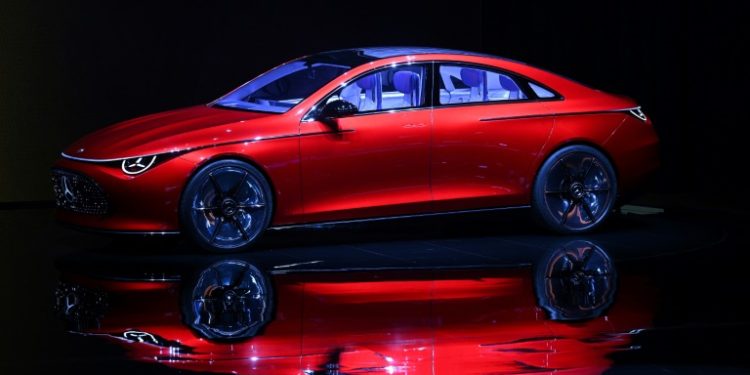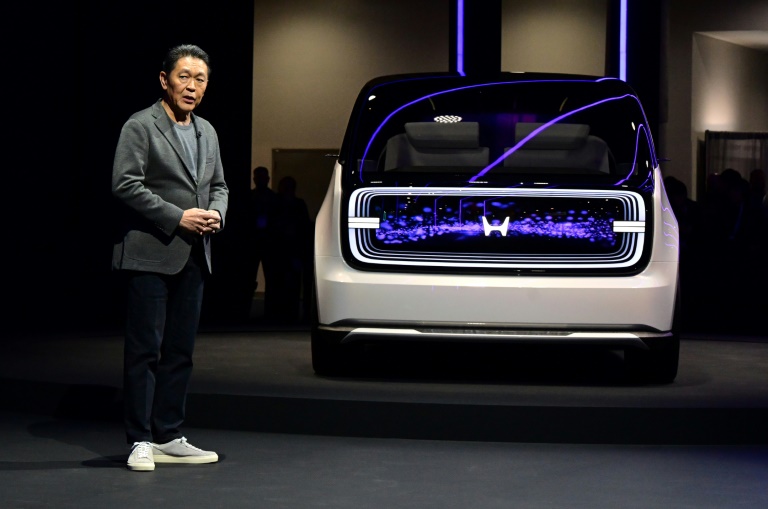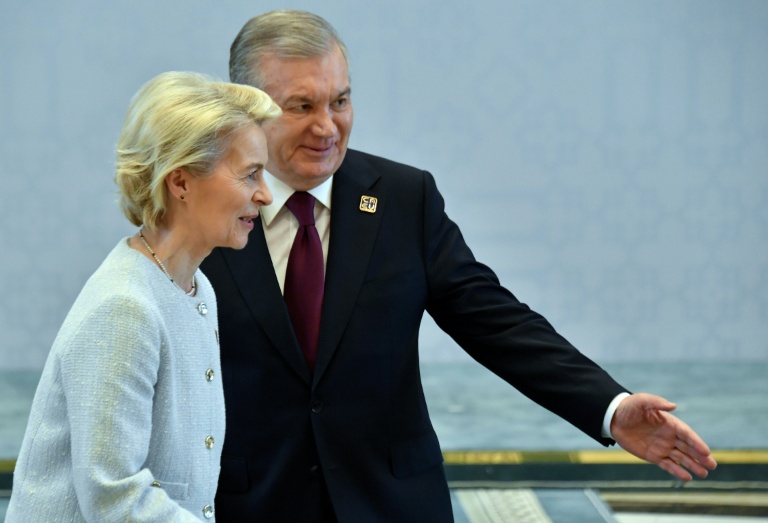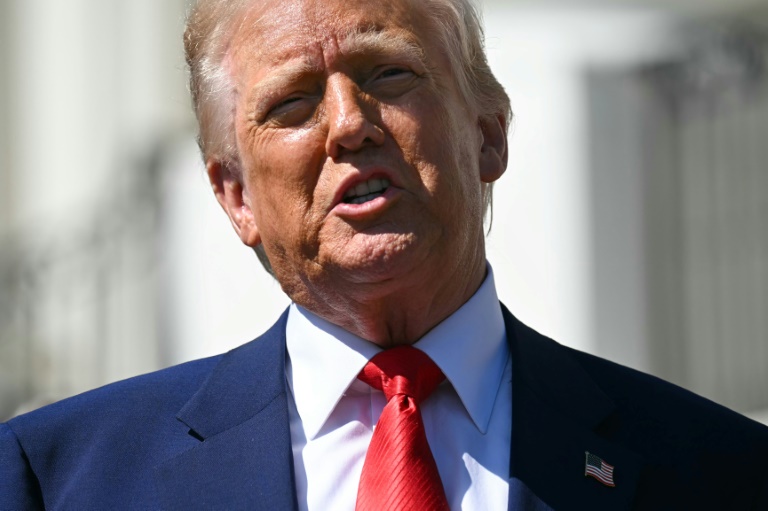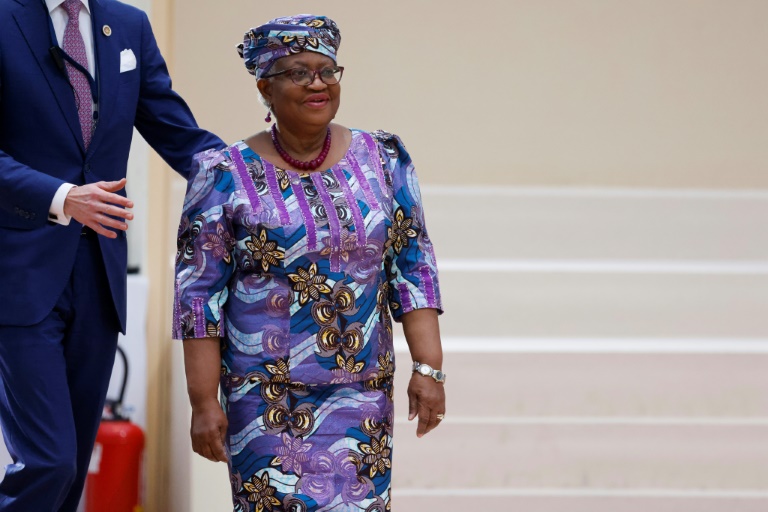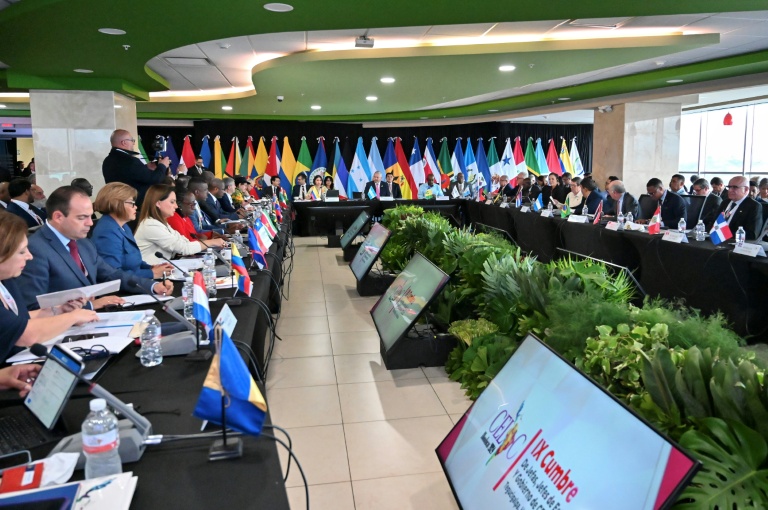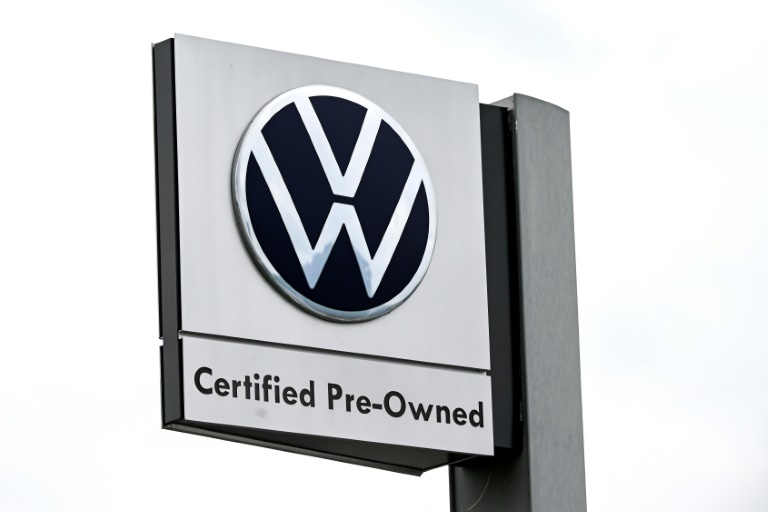Beijing (AFP) – Chinese car giants locked in a cut-throat price war descended on the capital for the start of the Auto China show Thursday, vying to draw consumers and headlines in the world’s biggest electric vehicle market and abroad.
China’s EV sector has exploded in recent years, and firms are now engaged in a no-holds-barred battle to offer customers the coolest accessories at the lowest prices.
EV makers from China have made inroads into markets from Europe to Southeast Asia and Tesla’s Elon Musk described them in January as “the most competitive car companies in the world”.
Beijing’s Auto China show, which lasts until May 4, sees dozens of firms square off in a bid to draw customers at one of the country’s biggest car shows.
Thursday saw crowds surge into the convention complex hosting the event, which takes place every other year but had not been held since 2019 because of the pandemic.
Several of the Chinese automotive world’s top stars addressed audiences at the expo — including CEOs He Xiaopeng of XPeng and Lei Jun of Xiaomi — while visitors milled around the booths, snapping pictures of the shiny new vehicles on display.
There are a staggering 129 EV brands in China, but just 20 have managed to achieve a domestic market share of one percent or more, according to data compiled by Bloomberg.
Chinese consumers, especially in the premium market, expect smart functions in their EVs, something domestic firms are far better placed to provide than foreign companies, experts said.
– ‘If you can’t beat ’em, join ’em’ –
Chinese EV makers “are looking at the car much more like Apple looks at the phone or the iPad or the laptop. They’re looking to really amp up the experience”, said Daniel Kollar, head of automotive and mobility at the consultancy Intralink. “That’s…what the Chinese consumer expects.”
For established foreign firms trying to compete in the Chinese market, that poses a challenge.
“Companies like VW and Stellantis, they are trying to take an ‘if you can’t beat ’em, join ’em’ approach,” Kollar told AFP. “That’s why you’re seeing partnerships pop up with the likes of XPeng. They feel like they’re behind and the best way to jump to the front of the line is to partner with some of these native smart EV (original equipment manufacturers).”
Among the most closely watched firms at Auto China is BYD — “Build Your Dreams” — a Shenzhen-based battery and automotive giant that beat Tesla in last year’s fourth quarter to become the world’s top seller of EVs. Tesla reclaimed that title in the first quarter of this year, but BYD remains firmly on top in its home market.
The firm is expected to unveil its first electric pickup — the BYD Shark — at the event. The Shark’s price has yet to be disclosed, but BYD has said it will be equipped with the firm’s dedicated off-road technology platform.
– Rapid growth abroad –
The show comes amid an intensifying price war between EV companies, made all the more competitive as consumer spending slows in China.
On Monday, Beijing-based Li Auto slashed the prices of its models by up to 30,000 yuan ($4,141). That followed a decision by Tesla in China to lower its prices by 14,000 yuan.
And as competition turbo-charges in China, the rapid expansion of its EV production has raised eyebrows in the West, where regulators fret that an oversupply of cheap Chinese vehicles could outprice local competitors.
Beijing has labelled foreign concerns of overcapacity “groundless”, insisting that the success of its EV sector is down to innovation and advanced supply chains, not subsidies.
But it had long given EV firms a boost, funnelling generous amounts of state cash towards domestic manufacturers and offering purchasing discounts in a bid to spur growth and speed up the shift towards clean-energy cars.
Those central government retail subsidies were phased out in late 2022.
But as firms push aggressively into countries across Europe, Southeast Asia and Latin America, they are increasingly under the spotlight.
The European Union launched an investigation last year into Chinese state EV subsidies, which it said had given companies from the country an “unfair” leg up in the local market.
The probe coincides with reports of Chinese vehicles piling up at European ports, as logistics networks struggle to cope with the surge and local consumers are slow to buy them.
Those headwinds haven’t stopped BYD from launching a future EV factory in Hungary, making it the first Chinese firm to manufacture passenger cars in Europe.
And last week, state-owned Chery signed a deal to produce mainly electric vehicles in Spain.
© 2024 AFP

